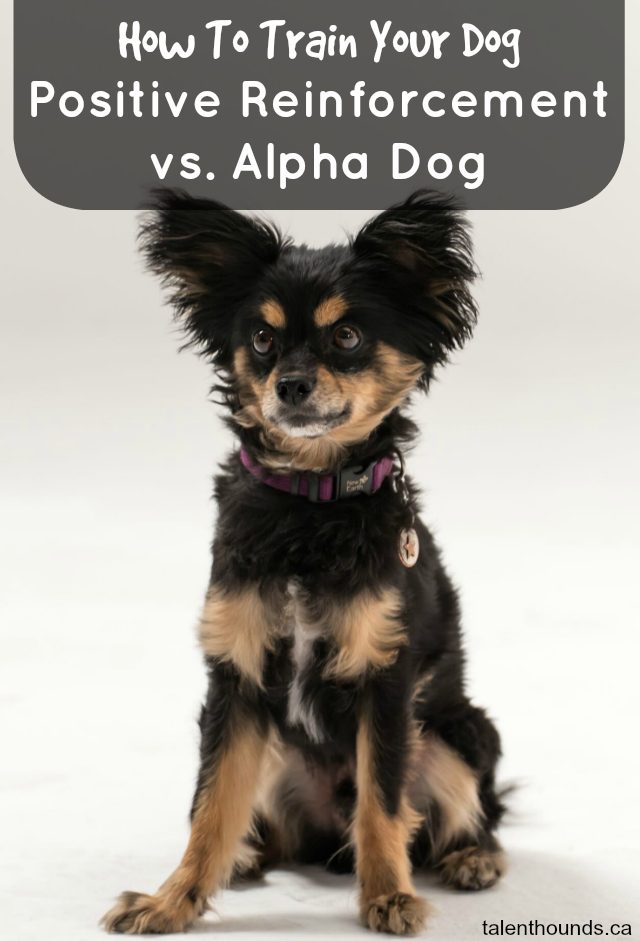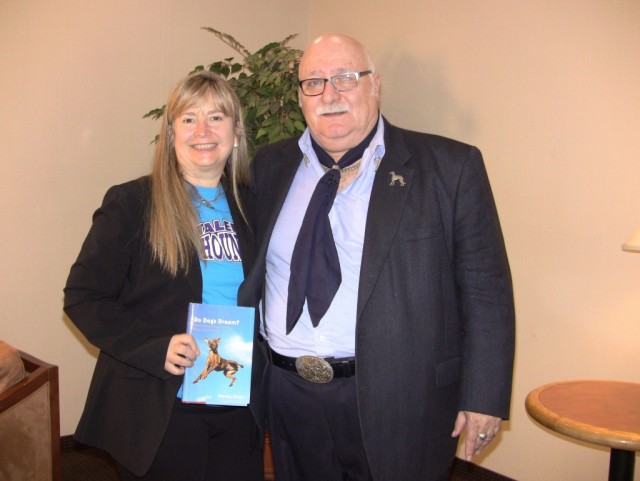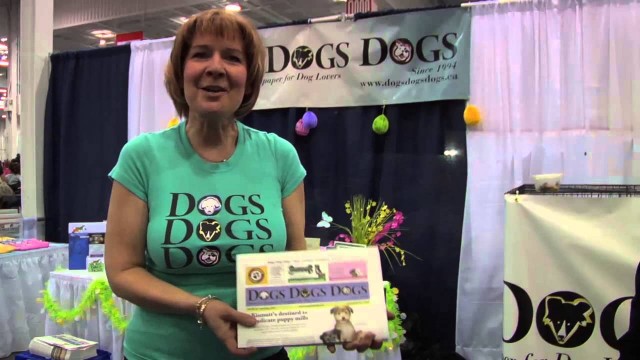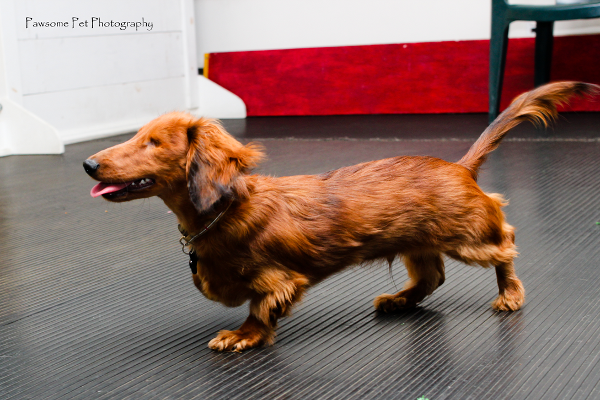Should Training Your Dog Be All Fun and Games For You and Your Dog?

We have been blown away by how much fun people are having with their dogs. Today, the effort many are prepared to put into understanding, loving and training is inspiring.
We have been researching training philosophies and tips, and have been lucky enough to hear from some great people and dogs.
Please share any of your insights, tips or feedback you have in the comments section below this article. Plus be sure to share the article.

Understanding Dogs
Experts like Dr Bruce Fogle, Dr Stanley Coren (featured here with Susan Nation) and Dognition founder Dr. Brian Hare have been researching just how smart dogs are and how they learn. Dr Coren’s books describe the different types of intelligence and different skills of dogs and even compares them to those of human children. These insights helps people choose the right dog breed for their lifestyle and how to better help dogs develop their talents through techniques like shaping, luring and copying. Through Dognition, people can now test their dog’s learning style and abilities.
Some trainers in New Zealand even taught 3 rescue dogs from the SPCA to drive a car using positive reinforcement to promote how intelligent, talented and trainable rescue dogs can be. #RescuesRock
Our friend and DogGuru, Cheryl Orletsky from Holiday Pet Care told us: “It’s moving away from thinking of training as controlling dogs and moving much more towards the idea of learning communication skills so that they’re actually going to understand what we want from them. ”

The Future of Dog Training
Many people used to think of dogs as pack animals that needed a leader or Alpha and learned through rewards for good behaviour and punishment and corrections for bad. Just as there used to be corporal punishments like spanking and caning for children who misbehaved.
Karen Sandford from Woofjocks informed the Talent Hounds crew: “There seems to be a trend towards positive reinforcement training, which is wonderful. People have learnt that its not so much about correction based training anymore. It’s more about building a bond, building a relationship, using food rewards and praise working with their dogs.”

We were lucky enough to hear Victoria Stilwell, host of Animal Planet’s “It’s Me or the Dog” speak about positive reinforcement training at The All About Pets Show and see her in action at the Royal Winter Fair. Her motto is “Change Dogs’ Lives POSITIVELY”. Stilwell’s most recent book, “Train your Dog Positively”, details why she prefers kinder training methods, which she believes are highly effective.
She is not a fan of shock, choke or prong collars and came out against “lazy training” methods in a recent article by Steve Dale in the Chicago Times. Apparently, these shock collars are still quite popular in some circles. Eva Mendes even talked about using one with her much loved Belgian Malinois on Late Night with David Letterman. But Victoria finds “using these devices that cause torture and pain on our best friends” is cruel and unnecessary. She does believe in rules and structure but emphasizes working on building motivation and trust, rather than punishment and the “pack leader” theory.
Renee DeVilliers, from All About Dogs, said in an interview for our film “Talent Hounds”
“I feel it’s our responsibility to teach these dogs how to live in our human society. And doing that through corporal punishment or yelling or intonation or intimidation is really unfair. Almost all dogs can be modified and almost all dogs really should be modified because they are dogs. There isn’t necessarily this concept of pack order. Being a pack leader implies that you are going to force, that you are going to dictate and you are going to expect compliance which will be followed up by some sort of reprimand or forced control. Here, what we like to teach is that the dog can learn self-control so that they are learning to comply to simple commands, such as a “sit” in order to get what they want.
One of the key components to understanding the use of positive reinforcement training is understanding the psychology of the dog. Many people don’t understand why a puppy is growling when they are playing tug, they don’t understand why their dog is taking things and running away. So a lot of what I try to explain to people is what is the unique nature of their dog. A lot of that can be based on their breed or mix of breed, what that dog was selected for like herding, guarding or hunting.”
Heather McLeod from RUFFSPORT explained her take:
“I have a group of dogs that I compete in agility, flyball, disc and dock jumping. We have a load of fun building a lot of the foundations in order to do these sports. We work on tricks and foundations so that the dogs understand focus, handling and what is expected, and all through positive reinforcement. We use rewards like food, praise, toys and play.
We take advantage of their natural drives like chasing and running, especially in the case of herding dogs like Diesel. You can build with that natural prey instinct to chase you for a good recall, and the instinct to play with toys, to chase you to play. You want to work all that safe fun stuff and basically keep them into you rather than everything else in the environment. We shape behaviours. Shaping a behaviour means training a dog to do something in small stages. We teach the dog to perform a new behaviour by breaking it down into smaller parts and rewarding it. We try to “capture” the behaviours we like. We wait for the dog to perform a certain behaviour, and then reward it so he will repeat it again with treats or a game, positive feedback and in some cases a clicker.”
GlennFerguson from Cancerdogs.ca trains his dogs to detect cancer in breath samples using rewards like treats.

We met Gillian Ridgeway of Who’s Walking Who at the All About Pets Show where she showed us her cute little puppy Levi who can already do a few tricks for treats. Ridgeway talked to us about understanding dog breeds and traits so you can choose the right type of dog for you and your lifestyle. She also highlighted using positive methods to socialize and train your dog.

A Talent Hounds fan favorite, blind rescue dog Arthur has done puppy training with Gillian and Mom Margaret (who is with Helping Homeless Pets) and has responded so well to positive training.
Tanya Trinchini, a spokesperson from our sponsor Bullwrinkles Dog Treats which we use in training commented:
“We’ve noticed a trend that people are training their dogs more with rewards and we want to provide healthy treats for them. Something they can give every day that’s high in protein which will keep up their energy as well as low in fat so they aren’t gaining weight when they’re training all the time.”
Lucinda Glenny of Canine Campus impressed us with her own very well-trained pups, as well as her kindness and compassion, nurturing foster Chihuahua dogs from CCRT. She specializes in training dogs with anxiety or behavioural issues and uses rewards. She is currently studying for her BSc in Behavioral Science at York to further her understanding of how environment and temperament affect each dog. She insists on the importance of early socialization and positive training.
How do you train you dog?
Sara Carson of The Super Collies made it to top 5 on America’s Got Talent, and was on the David Letterman Show with her amazing young Border Collie Hero is. Hero another Talent Hounds fan favourite, who already knows hundreds of tricks. She sums up her philosophy with: “Keep it Pawsitive”.
Cassandra Hartman of Cassandra’s Canines showed us how training in sports like Treibball and Canine Freestyle (dancing) using natural drives to motivate and positive rewards stimulates the dogs’ minds and bodies. She said, “Training for you and your dog should be an enjoyable and relationship building experience”.
Gemini K9 works with both pet dog and working dog owners, who are seeking to provide their dogs with activities that are both mentally stimulating and fun! They use naturally drives and positive methods to bring out the best in dogs like the gorgeous miniature poodle Daniel (from Over the Rainbow: The Search for Toto) and their own Rottweiler both featured in Talent Hounds. However they do believe in hierachies with leaders and discipline.
They note on their website, “The truth is that dogs are hierarchical beings; it’s wired in their wolf DNA. They crave and need structure, rules, limitations and discipline.”
In fact, there are still many respected dog trainers, including Cesar Millan, who appear to promote Alpha Dog, human dominance or being a pack leader to your dog. Methods include rules, discipline and establishing your position as the leader by asserting your dominance.

First: I have to say that I am pretty proud of Talent Hounds and the All About Pets Show for showcasing positive dog trainers and training!! I met Dr. Stanley Coren at the hotel restaurant before the show and I was grinning ear to ear so happy to have met him!
As a crossover trainer I can say that positive dog training is the only way to go, not only is it dog friendly, it is significantly more effective! Dogs are for enjoyment, who wants a relationship where you have to intimidate and compete with your dog constantly? I don’t do that with my dogs. I teach them to have self control, use food or environmental rewards, teach how I want my dog to behave instead of correcting him for what I don’t want and provide consequences free from physical punishment. (time out, removal of reward) Positive does not mean permissive, and dogs are not so different from us that pinning, choking, shocking and intimidating are conducive to their mental health or relationship with us.
It doesn’t have to be that way.. training can be effective and fun for everyone!
Good blog Talent Hounds!
Thanks so much Melissa! Great input- always love seeing you. Pats to Bella and Sophia.
Rules, structure and discipline (the noun not the verb) are part and parcel of learning for all creatures. Antecedents are followed by Behaviours which are followed by Consequences. It is how we learn and make sense of our world. If there are no rules, there is chaos and insecurity. HOWEVER, there is no reason to use force to create order in a dog or child or horse’s world. Self maintained discipline and following of rule structures are more effective (with the learner on the same page as the teacher) and more conducive to mental and emotional health. Mistakes are part of learning and if it impugns the student’s safety to make mistakes then you get conflict stress and less cooperation and enthusiasm from the learner. Just as corporal punishment has largely gone by the wayside in child rearing, so it will soon fade away in animal training.
Great points Karin. Thank you!
What I find baffling is why it is insisted that we should use treats as a positive reward???
As someone who has spent many years in the field of rescue
I personally think the use of food as a positive reward is not as effective a tool for building a bond as a simple moment of touch and praise.
As humans we hold out children, and touch them often to cement the bond between mother and child. Children that grow up without this touch often encounter a lot of difficulty forming and maintaining bonds in relationships.
When training I feel that to hand a dog a treat and then step back when they have preformed the desired command a a bit of a disconnect.
I have always used touch and verbal praise as a reward in my training.
When training I say the command once, lift up on the leash, not applying anymore pressure then is required to hold the clip on the leash upright so it does not fall back to rest on the dogs body. Then wait, the second the butt hits the ground I praise and pet. The second the dog moves I repeat the above.
I have a pack of 4 personal dogs and currently 10 foster dogs. All of which are trained the same way and whom are walked without even requiring a leash. A stranger once commented saying” I can’t believe you walk that many dogs together and they don’t run away, I wish my dog would follow me like that”
Another comment from a training client was ” your dogs are all so happy to follow you, my dog is never happy to follow me”
I call myself a “pack leader” that is a term I believe is correct based on my position when out with my dogs.
I always walk in front of my dogs regardless of how large or small my pack is I am always in the lead position.
Why is this wrong??
Why is praise and petting not a good enough reward. Why is the term pack leader shunned when the simple fact is I am leading (maintaining a forefront position) in my pack (group of one or more dogs including myself)????
Interesting perspective in post Love the Dog Whisperer, Wouldn’t Let Cesar Milan Near My Dogs http://www.keepthetailwagging.com/love-the-dog-whisperer-wouldnt-let-cesarmilan-near-my-dogs/
by Kimberly
Jambo – Staffy Bull Terrier Trick Dog. Dog of The Year 2013 for In The Doghouse. The first Staffordshire Bull Terrier to be a Trick Dog Champion. Trained with Positive Reinforcement! His accomplishments say it all – why punish when you can reward?
Exactly! So pawsitive- Congrats to you and Jambo. X TH